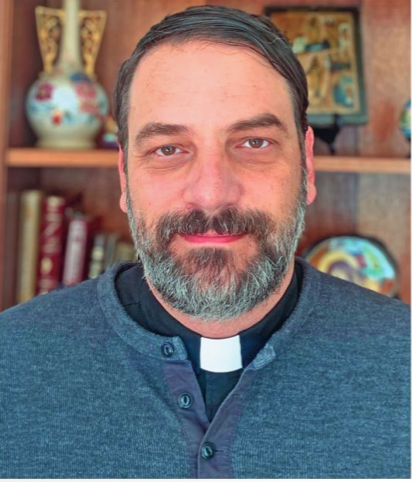Hamptons Soul: The Law of Common Decency


Rabbi Josh Franklin of the Jewish Center of the Hamptons and Father Constantine Lazarakis of the Dormition of the Virgin Mary Greek Orthodox Church of the Hamptons discuss the law of common decency.
Father Constantine Lazarakis
In just a couple of weeks, we will be celebrating Memorial Day, the unofficial start of summer. On the East End, that usually means an uptick (perhaps the understatement of the year) in traffic, lots of people out and about, crowded stores and streets, houseguests, etc.
This year, summer finds us, of course, on the tail end of the COVID-19 crisis. We have lots of pent-up demand, lingering COVID precautions and some unresolved questions about capacity. So, as we look to the summer, we have a strange mixture of optimism, excitement and anxiety.
As amazing and fun as summer in the Hamptons is, it’s also a time when many of us simply lose our sense of common decency. Aggressive driving, littered beaches and haughty attitudes are all too commonplace in the summer months. We complain about these things, but what we need is to find the spiritual origin of the phenomenon.
The Book of Genesis states that each human being is created in the image of God. Practitioners of yoga exchange the greeting, “Namaste,” acknowledging the divinity in the other. Victor Hugo famously wrote, “To love another person is to see the face of God.” When we are mindful of the sacred core of the person in the car ahead of us, or behind the counter at the bakery or with whom we are sharing the beach, we are less likely to lean on the horn, to respond with belligerence or to leave our trash. We are then more likely to hold a door open, exercise a little patience and share a little kindness. It’s been a tough year for all of us. Let’s see the sacred in our neighbor, and instead of falling in the trap of summer entitlement, let’s make it a summer of kindness.

Rabbi Josh Franklin
One of my favorite movie scenes of all time comes from Mel Brooks’s History of the World: Part 1. Moses descends Mount Sinai carrying three tablets, and as he’s proclaiming the 15 commandments of God, he drops one of the tablets and corrects himself, “I mean 10 commandments!” It’s funny, but it also begs the serious question of whether the Ten Commandments are an adequate set of moral and ethical guidelines.
For example, certain commandments are redundant. If you aren’t coveting your neighbor’s property and his wife (commandment 10), then there is no need to say you shouldn’t commit adultery (7) and you shouldn’t steal (8). But the bigger problem with the Ten Commandments is what’s lacking. In other words, the content of Mel Brooks’s comical and hypothetical third tablet may be important.
There are several rather obvious should-be commandments that are missing from the Decalogue. For starters, how about a prohibition against rape and sexual assault? Perhaps there should be a commandment against shaming others, and another one about protecting the environment. But the most notable lapse is a commandment that just about every world religion deems a cardinal commandment: “Love your neighbor as yourself (Leviticus 19:18).”
Jesus taught in the Gospels that next to loving God, this is the most important commandment (Mark 12:31). The great Rabbi Akiva, writing in a similar period also taught that this commandment is “the great general principle of Jewish law (Sifra, Kedoshim 2:4.12).” While loving your neighbor, often dubbed the “golden rule,” has been deemed the greatest commandment, its absence from the Ten Commandments is striking.
That’s because the root of this commandment is the source for all other ethical teachings of the Bible. The Talmud, a great book of Jewish wisdom, tells the story of a man who asks to learn the entire Torah while standing on one foot. While he is rebuffed by one sage for this suggestion, the great sage Rabbi Hillel paraphrased this paramount commandment and added, “The rest is the commentary; go and learn it!”
For all the technical and nitty gritty commandments that detail how to live a religious life, they are all for naught if this law of common decency is neglected.



